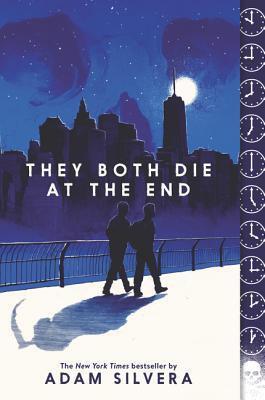
4 minute read
Radboud Anti-Racism Awareness Week
by NUKS KNUS
“This week is intended to be a week of conversations, discussions and debates where everyone is invited into a safe and inclusive space to discuss issues that are relevant globally, within the Netherlands, the Nijmegen community and within the Radboud community of students and staff.” - ARA Radboud
by Paula Werdnik
Advertisement
photography: Anna Shvets (from Pixels) The Radboud Anti-Racism Awareness (ARA) Week was from the 22nd of March until the 26th of March 2021. The week was organised by the Diversity, Equity and Inclusion Team and spearheaded by students Karla Kiefer and Nikita Krouwel, among others. The week included an Opening Ceremony, speakers, lectures, discussions, workshops, a movie screening and a Closing Ceremony, including a performance of ‘Radiant Shadow’ by Farida Nabibaks and her theatre crew.
Unfortunately, due to deadlines, I only joined the ARA Week for the final day of the week - Friday’s programme. Yet, the events of that day were touching, informative and enriching. Friday’s programme included a morning lecture titled, “Heritage and Healing”, led by Josias Tembo and Kiki Kolman, as well as the Closing Ceremony in the evening.
To summarize and build on the words of Josias and Kiki (and the discussion afterwards), the event was centered on the brokenness of our system. Healing and inclusion can’t begin if we are stuck in a system that is broken and excludes certain parts of history and stories. White people, in general, have not sat with the uncomfortable feelings of colonialism and slavery and accepted it. In order to move forward, we must deal with these histories to avoid ‘white fragility’ (the centering of a white person’s or white people’s discomfort on such topics rather than the actual issue people of colour are going through). White fragility usually ends in defensiveness or avoidance of the subject, which, of course, is not productive.
Indeed, it is quite Western-like to attempt to heal very quickly, and only superficially, like taking a pill when you’re sick. Similarly, with social change, healing is not defined by one yearly Black History Month or AntiRacism Awareness Week. Real healing is long-term. And we have a responsibility as students, intellectuals, and members of society to undergo this healing, said Josias Tembo.
Part of healing, for example, might be reconsidering our ways of knowledge. We need to reconsider what our sources of knowledge are. The theories learnt and textbooks used often have colonial connotations. Historically, even the fact that only some could write and were literate defined who created knowledge and which knowledge was passed down. Other forms of knowledge, such as knowledge passed down orally or emotion-based knowledge, are excluded from academia.
Additionally, Europe, as a colonial empire, was seen as the center of the world. European scientists brought ‘exotic’ subjects and peoples from other areas to classify, order, locate and define them. The European view was often seen as the only world view, denying other realities/forms of knowledge. The academic space is often a white space and isn’t accessible to everyone. Then, there is the literal campus space. For example, the Linnaeus Building, named after Carl Linnaeus, has colonial and racist connotations. These connotations already speak as to who is and isn’t welcome on campus.
We may think of space as a neutral, expansive thing, yet it is not. Being a POC in a ‘white space’ can feel like ‘disrupting the space’ by just being there. All of us, as students, need to be ‘conscious consumers’ of knowledge. Meaning we need to be critical and challenge the knowledge we learn. We need to ask the questions, “Who is doing the teaching? Who is learning? Who is being excluded from this conversation?” Especially as a non-POC ‘ally’ (someone who stands up for a marginalized group even if they are not part of that group), it is important to help out in the classroom. During the discussion, I was saddened to learn the amount of intellectual and emotional labour POC students go through in pointing out and correcting racist remarks in class. Or by being asked to offer an intersectional perspective in courses. This is taxing, and it should be the job of universities to be critical and intersectional in the first place. It is the students who are paying to be educated and not to perform unpaid labour to “diversify” the university.
The main message I took away from that day was - it is not enough to ‘not be racist’. We need to be actively anti-racist. We need to be conscious consumers of our knowledge and challenge sources of knowledge. So, the next time you hear a racist or questionable remark in class or see a lack of diversity in the coursework, remember you too need to speak up as an ally and shouldn’t leave it to the POC in the room to constantly do so. In the words of Karla, “check your privilege”. We need to listen to POC and also take action. Let’s use our knowledge to help in the long-term, and beyond just one ARA week.

@ara_radboud






